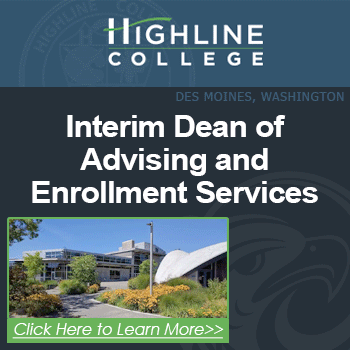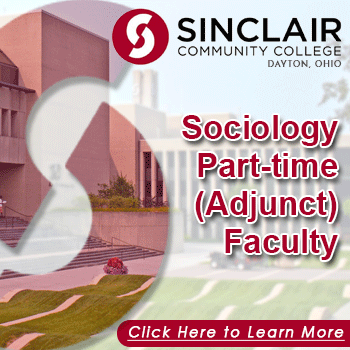This job has Expired
EPA Postdoctoral Fellowship for Wetland Nutrient Mitigation Modeling Across Multiple Watershed Scales
Job Description
- Agency
- U.S. Environmental Protection Agency (EPA)
- Location
- Cincinnati, Ohio
- Job Category
- Fellowships & Scholarships
- Salary
- TBD
- Last Date to Apply
- 10/13/2023
- Website
- https://www.zintellect.com/Opportunity/Details/EPA-ORD-CEMM-WECD-2023-03
- Description
- *Applications may be reviewed on a rolling-basis and this posting could close before the deadline. Click here for information about the selection process. EPA Office/Lab and Location: There is a research opportunity available at the U.S. Environmental Protection Agency (EPA), Office of Research and Development (ORD), Center for Environmental Measurements and Modeling Division (CEMM). The appointment is with the Watershed and Ecosystem Characterization Division (WECD), Ecosystem Condition Branch (ECB) in Cincinnati, Ohio. The ORISE Ph.D. student or postdoc is expected to relocate to Cincinnati and/or be in the office once a week, as per current ORISE requirements. Research Project: Nutrient-driven harmful algal blooms and hypoxia events in lakes, estuaries, and other downgradient receiving waters (e.g., the Gulf of Mexico, Lake Erie) are increasing in their frequency, magnitude, and duration, with excess nutrients as a primary cause. Wetland restoration and creation, as part of a suite of conservation practices, have been advanced to mitigate excess nutrient (nitrogen, phosphorus) effects on downstream water quality. However, discerning the effects or “signal” of nutrient-mitigating wetland-based conservation practices (alone and coupled with “best management practices” or BMPs) at the watershed outlet from the “noise” inherent in landscape biogeochemical processing, downgradient transport, and source- and sink-dynamics in receiving waters has been challenging. This research project aims to better understand and characterize these wetland-mitigation effects on downstream nutrient levels via process-based watershed modeling. The research project focuses on coupling wetland spatial locations and potential local, landscape-, and watershed-scale processes influencing the efficacy of wetlands as nutrient mitigation strategies. The research participant may be involved with the following activities: Applying and modifying process-based watershed models (e.g., SWAT) to answer key research questions Analyzing and interpreting model outputs in the context of current literature Developing research manuscripts and presentations at professional society conferences Collaborating with research scientists in other federal agencies and academia Developing new research questions and directions related to the project’s goals Learning Objectives: The research participant will have the opportunity to achieve research objectives by developing and applying process-based watershed modeling approaches coupled with state-of-the-science big data (i.e., monitored gauge, geospatial, and remote sensing data). The research participant will collaborate with our productive and enthusiastic research team of watershed hydrologists, biogeochemists, and systems ecologists for a two- to three-year postdoctoral research appointment. The research participant will gain experience with cross-agency collaboration (e.g., with US Department of Agriculture (USDA), Natural Resources Conservation Service). The research participant will lead multiple publications of the study outcomes in leading scientific journals, as well as present research findings at multiple professional conferences. Mentor(s): The mentor(s) for this opportunity are Drs. Heather Golden (golden.heather@epa.gov), Jay Christensen (christensen.jay@epa.gov), and Charles Lane (lane.charles@epa.gov). If you have questions about the nature of the research please contact the mentor(s). Anticipated Appointment Start Date: December 4, 2023. All start dates are flexible and vary depending on numerous factors. Click here for detailed information about start dates. Appointment Length: The appointment will initially be for one year and may be renewed upon EPA recommendation and subject to availability of funding. Level of Participation: The appointment is full-time or part-time and is negotiable. Participant Stipend: The participant will receive a monthly stipend commensurate with educational level and experience. Click here for detailed information about full-time stipends. EPA Security Clearance: Completion of a successful background investigation by the Office of Personnel Management (OPM) is required for an applicant to be on-boarded at EPA. ORISE Information: This program, administered by ORAU through its contract with the U.S. Department of Energy (DOE) to manage the Oak Ridge Institute for Science and Education (ORISE), was established through an interagency agreement between DOE and EPA. Participants do not become employees of EPA, DOE or the program administrator, and there are no employment-related benefits. Proof of health insurance is required for participation in this program. Health insurance can be obtained through ORISE. ORISE offers all ORISE EPA graduate students and Postdocs a free 5 year membership to the National Postdoctoral Association (NPA). The successful applicant(s) will be required to comply with Environmental, Safety and Health (ES&H) requirements of the hosting facility, including but not limited to, COVID-19 requirements (e.g. facial covering, physical distancing, testing, vaccination). Questions: Please see the FAQ section of our website. After reading, if you have additional questions about the application process please email ORISE.EPA.ORD@orau.org and include the reference code for this opportunity.
- Qualifications
- The qualified candidate should have received a doctoral degree in one of the relevant fields (e.g. Environmental Engineering, Civil Engineering, Hydrology, Water Resources, Geography), or be currently pursuing the degree with completion before June 30, 2024. Degree must have been received within five years of the appointment start date. Preferred skills: Experience in hydrology, environmental engineering, environmental science, geography, geology, or a related discipline. Experience in (1) process-based watershed hydrological and fate/transport models (e.g., SWAT, APEX, APEX/SWAT, or other similar models); (2) GIS/remote-sensing software and applications; (3) watershed hydrology and nutrient biogeochemistry; and (4) scripting (e.g., R, Python, MATLAB) languages.
- Contact Person
- Mentor/Program Email Listed Within the Opportunity
Bookmark the permalink .
*Please mention you saw this ad on AcademicJobs.*




